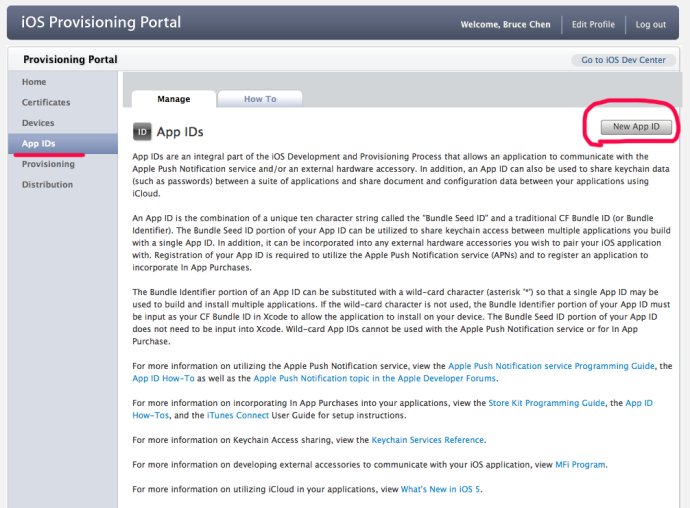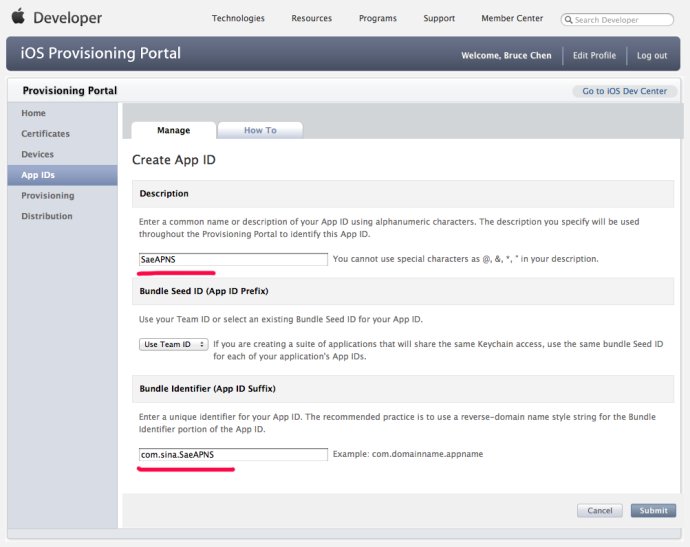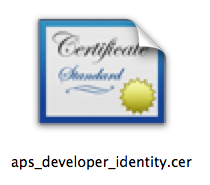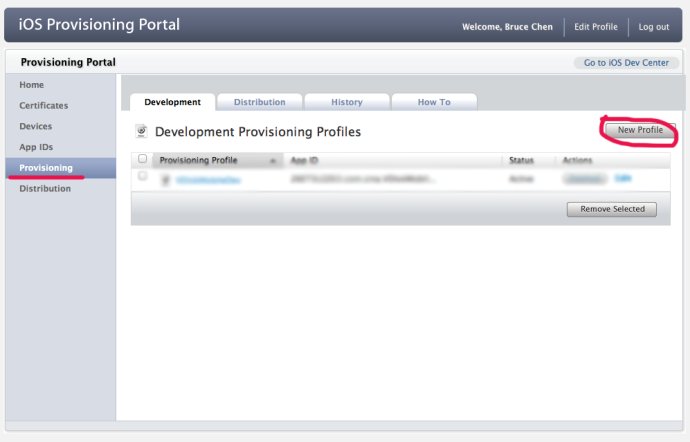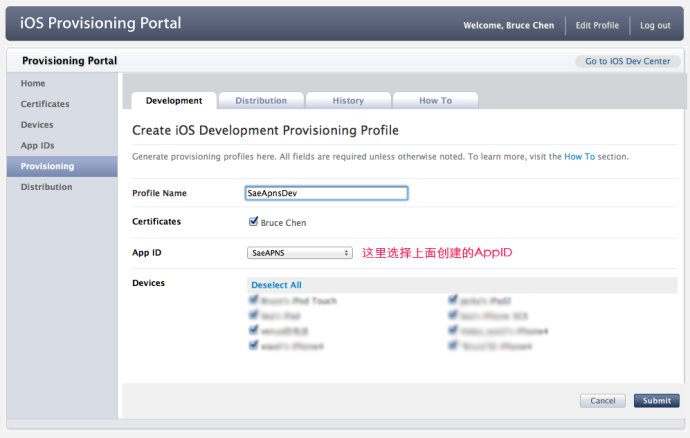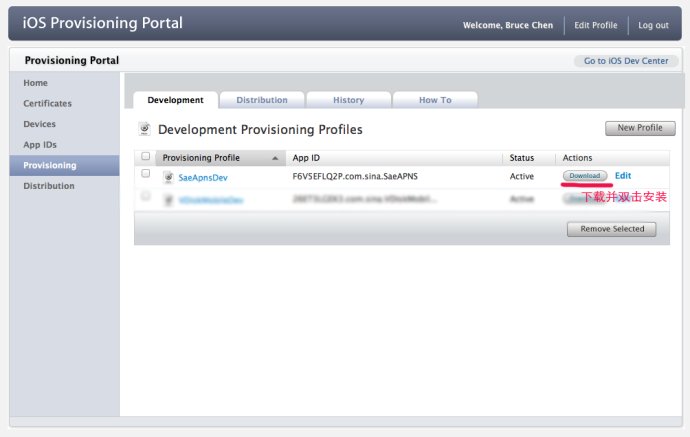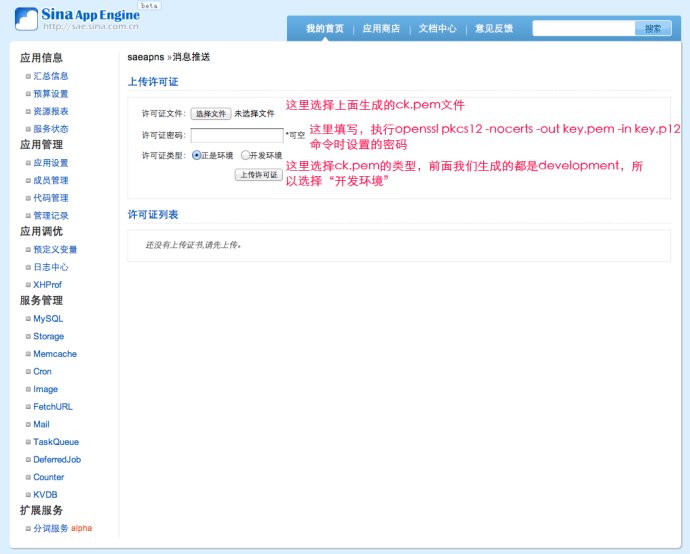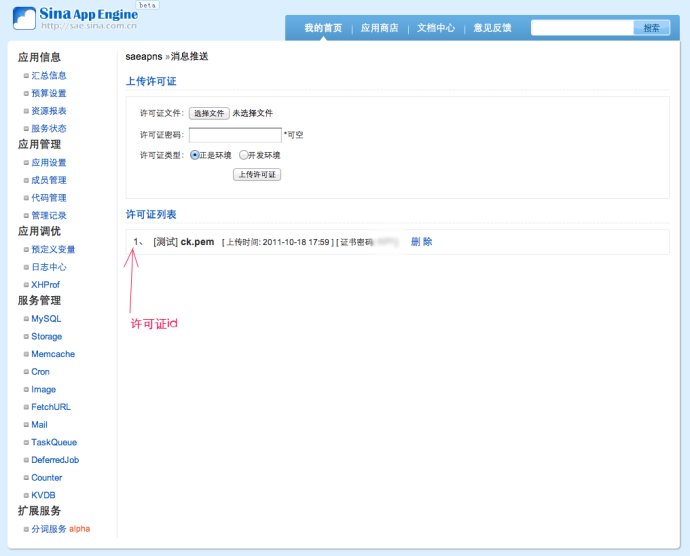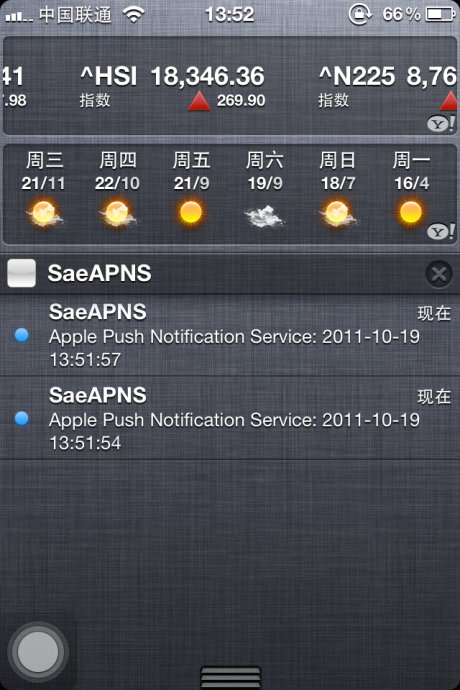在SAE使用Apple Push Notification Service服务开发iOS应用, 实现消息推送
1,在iOS开发者中心: iOS Provisioning Portal 创建一个AppID,如图:
2,生成iOS Push Service证书,如图:


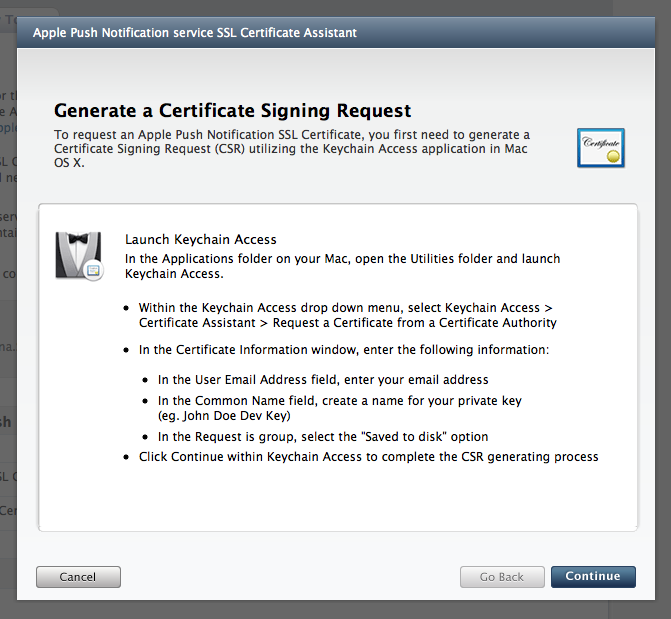
按照上述提示操作:
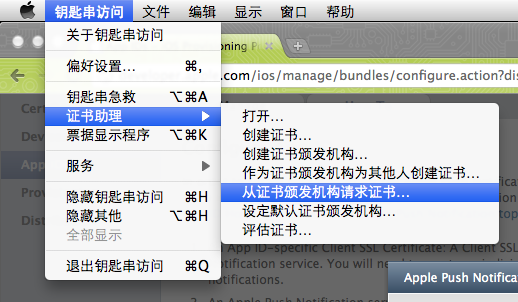
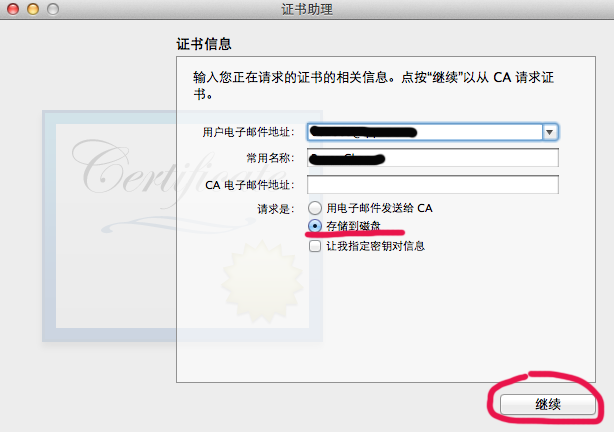
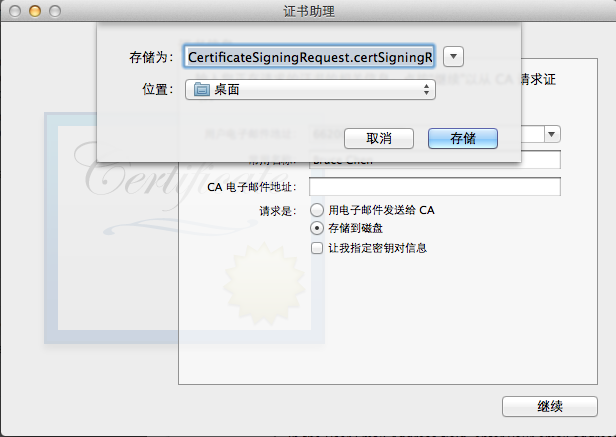
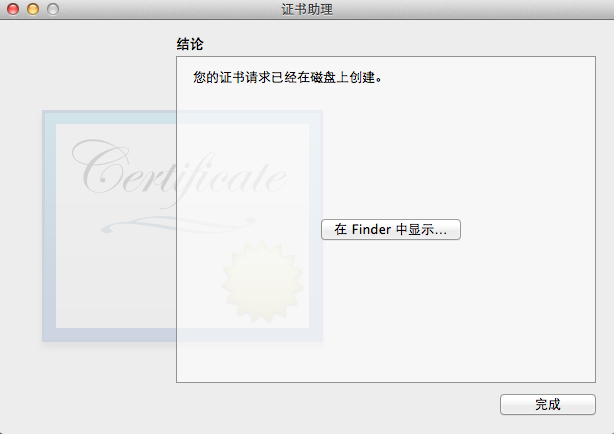
回到iOS Provisioning Portal:
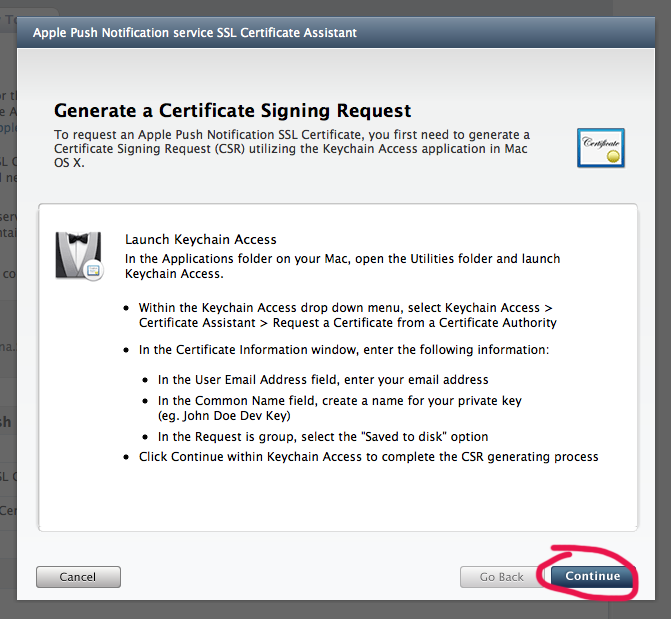
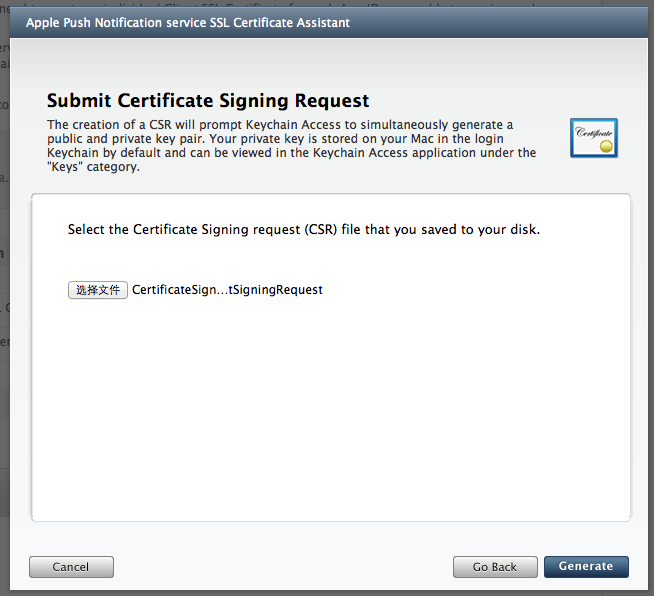
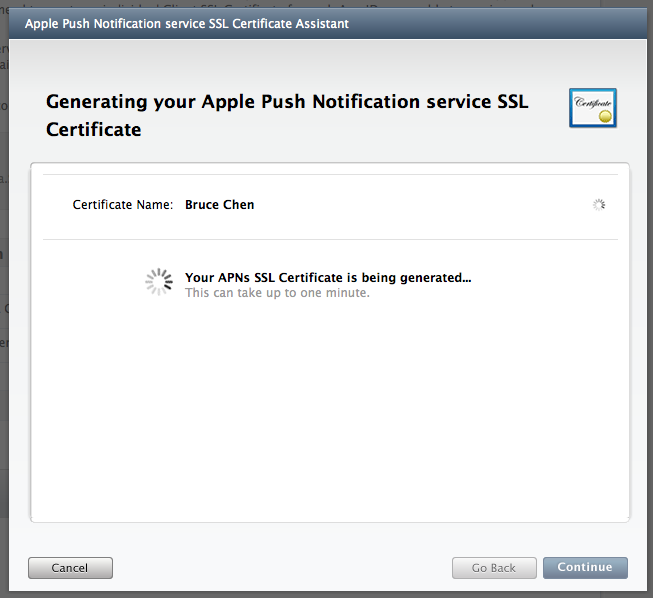
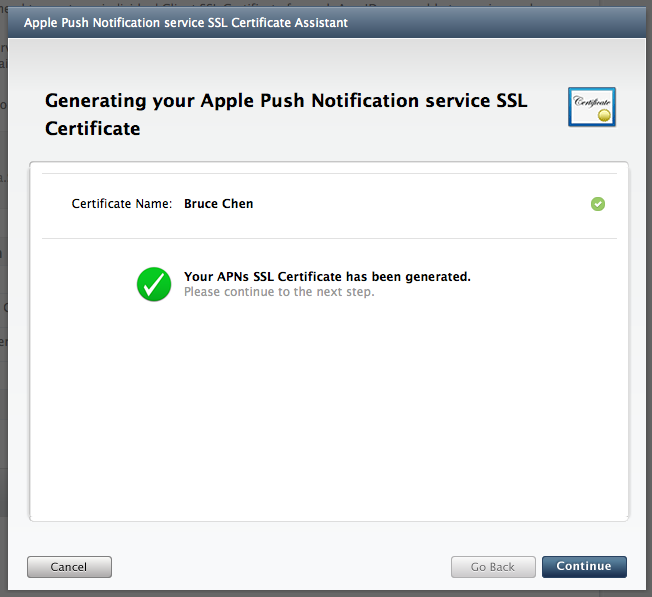
点击“Download”下载iOS Push Service证书文件,如图:
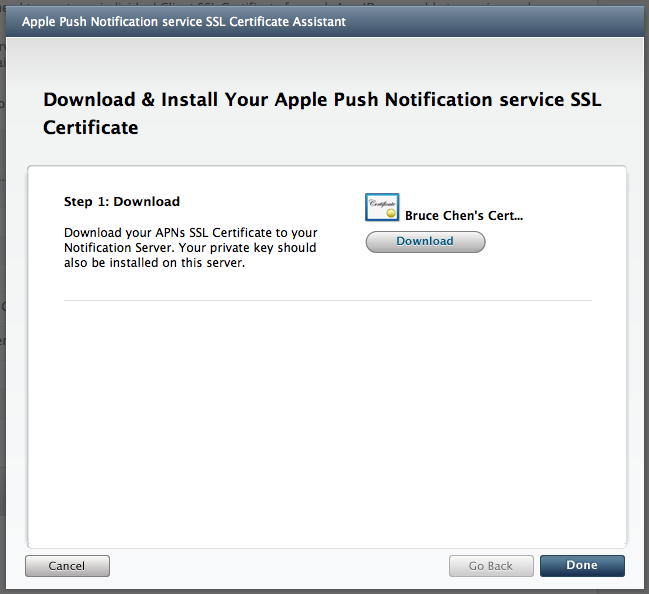
3,导入证书文件到keychain:双击即可
4,生成ck.pem
导出cert.p12:
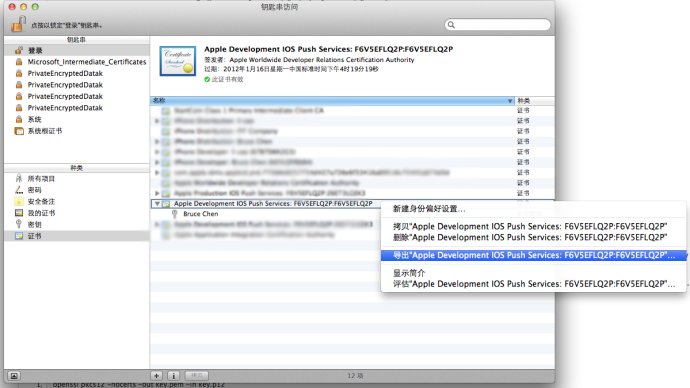

导出key.p12:
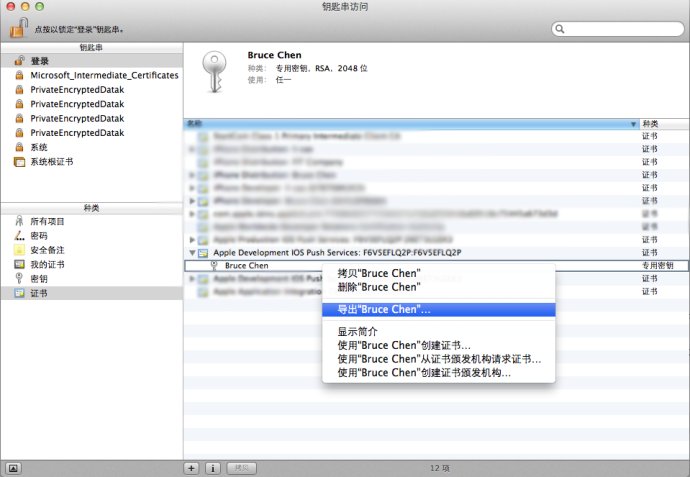
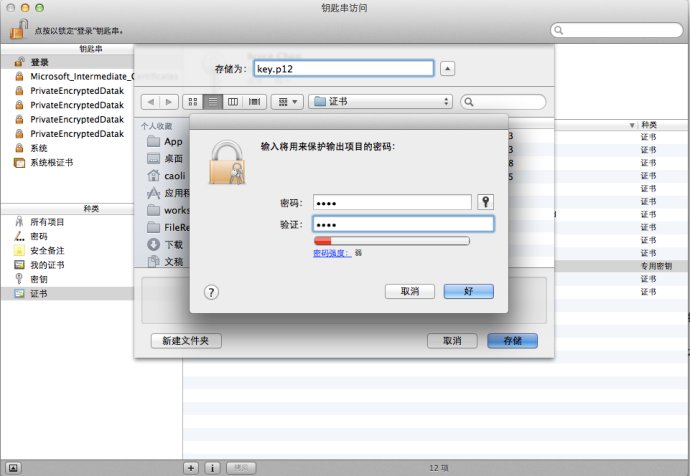
得到这样两个文件:
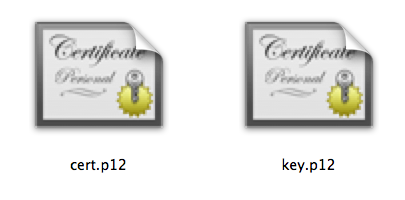
接下来打开终端:
输入命令:openssl pkcs12 -clcerts -nokeys -out cert.pem -in cert.p12

然后输入命令:openssl pkcs12 -nocerts -out key.pem -in key.p12
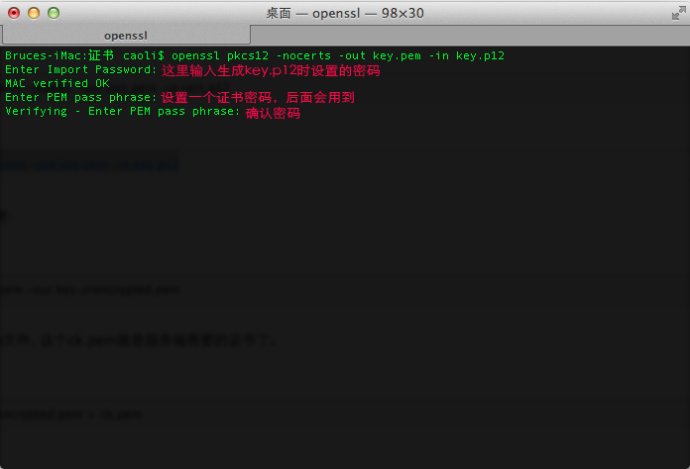
最后合并成一个ck.pem文件:
输入命令:cat cert.pem key.pem > ck.pem
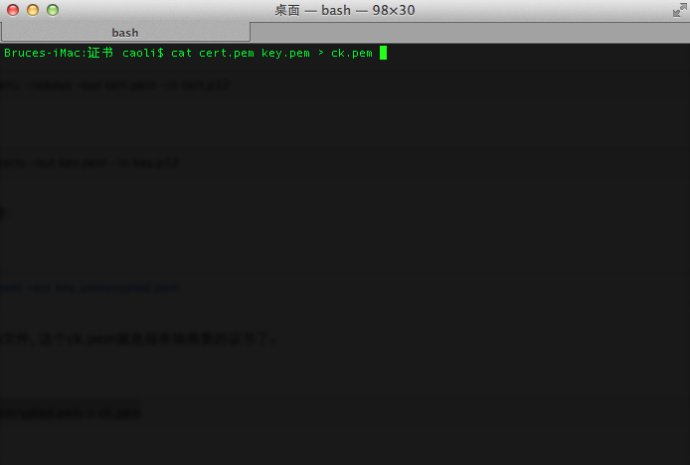
得到一个ck.pem文件:
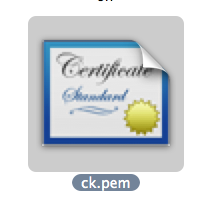
5, 生成并安装Profile文件:
6, 上传ck.pem到SAE, 如图:
7, 客户端程序:
设置profile:
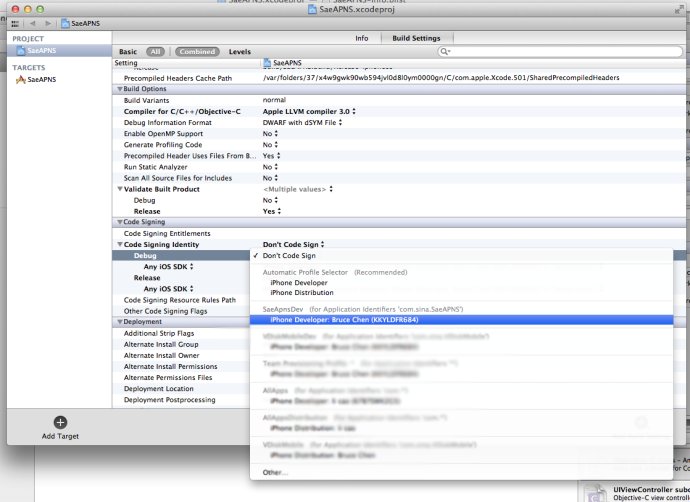
在info.plist中设置Bundle identifier:
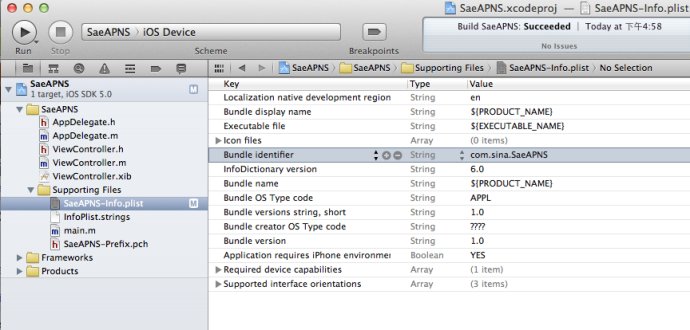
在合适的位置加入下面代码,将你的应用注册到消息中心:
-
- (IBAction)action:(id)sender { //注册到消息中心: [[UIApplication sharedApplication] registerForRemoteNotificationTypes:(UIRemoteNotificationTypeBadge | UIRemoteNotificationTypeSound | UIRemoteNotificationTypeAlert | UIRemoteNotificationTypeNewsstandContentAvailability)]; } 在AppDelegate中加入下面代码:
-
#pragma mark - #pragma mark APNS - (void)application:(UIApplication *)application didRegisterForRemoteNotificationsWithDeviceToken:(NSData *)deviceToken { //获得 device token NSLog(@"deviceToken: %@", deviceToken); /* . . . . . . 在这里把deviceToken和用户信息发送到服务器端 . . . . . . */ //获得 唯一标示 NSLog(@"uniqueIdentifier: %@", [[UIDevice currentDevice] uniqueIdentifier]); } - (void)application:(UIApplication *)application didFailToRegisterForRemoteNotificationsWithError:(NSError *)error { NSLog(@"Error in registration. Error: %@", error); } - (void)application:(UIApplication *)application didReceiveRemoteNotification:(NSDictionary *)userInfo { /* 收到消息自定义事件 */ if ([[userInfo objectForKey:@"aps"] objectForKey:@"alert"] != nil) { UIAlertView *alert = [[UIAlertView alloc] initWithTitle:@"通知" message:[[userInfo objectForKey:@"aps"] objectForKey:@"alert"] delegate:self cancelButtonTitle:@"确定" otherButtonTitles:nil]; [alert show]; [alert release]; } }
8, 服务器端程序:
-
/** * * 实例代码 * * SaeAPNS调用方法详见API文档:http://apidoc.sinaapp.com/sae/SaeAPNS.html * * @author Bruce Chen * */ header("Content-Type: text/html;charset=utf-8"); include_once("saeapns.class.php"); /* int $cert_id 许可证序号(1-10)*/ $cert_id = 1; /* string $device_token 设备令牌 */ $device_token = 'xxxxxxxx xxxxxxxx xxxxxxxx xxxxxxxx xxxxxxxx xxxxxxxx xxxxxxxx xxxxxxxx'; /* string $message 消息内容 */ $message = date('Y-m-d H:i:s') . ": \n" . '测试消息 from SAE'; /* array $body 消息体(包括消息、提醒声音等等),格式请参考示例和{@link http://developer.apple.com/library/ios/#documentation/NetworkingInternet/Conceptual/RemoteNotificationsPG/ApplePushService/ApplePushService.html#//apple_ref/doc/uid/TP40008194-CH100-SW1 Apple官方文档} */ $body = array( 'aps' => array('alert' => $message, 'badge' => 1, 'sound' => 'in.caf'), 'others' => array() ); //实例化SaeAPNS $apns = new SaeAPNS(); //推送消息 $result = $apns->push($cert_id, $body, $device_token); if ($result !== false) { echo '发送成功'; } else { echo '发送失败'; var_dump($apns->errno(), $apns->errmsg()); }

